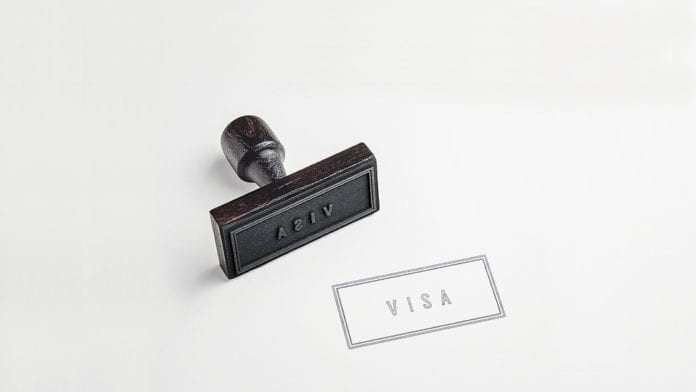Do you have €1,250,000 to spare to invest in an innovative company or a firm which adds value to the Dutch economy? There’s a chance you can skip the line before refugees and highly-skilled migrants to get a “golden” visa residence permit (and eventually citizenship if your heart so desires).

Since October 1, 2013, the government of the Netherlands introduced a residency scheme – also called a “golden visa” – for private foreign investors as a way to create more jobs within the Dutch economy. However, a foreign ministry spokesman told the Volkskrant that they are looking to scrap it, taking away even the slim chance that already existed. As of 2016, according to the Expat Management Group (EMG), an international legal service provider specialized in corporate and private immigration to the Netherlands, there have been only two successful applications out of a total of eleven under this scheme.
 The intention to stop this scheme comes after the European Commission published a report on January 23 raising concerns of security, money laundering, tax evasion, and a lack of transparency and information.
The intention to stop this scheme comes after the European Commission published a report on January 23 raising concerns of security, money laundering, tax evasion, and a lack of transparency and information.
How can you get a “golden” visa in the Netherlands?
To obtain a residence permit under this scheme in the Netherlands, the following conditions must be met:
- An investment of a minimum of €1,250,000 must be made towards a company based in the Netherlands, or in a seed fund (according to the Ministry of Economic Affairs), a participation fund or contractual partnership that invests in a company in the Netherlands.
- The amount has to be deposited into a Dutch bank account, or a bank from another EU member state that has a branch in the Netherlands.
- There’s a value added to the Dutch economy This is determined on the point based system as assessed by the Netherlands Enterprise Agency (RVO), where the investment must fulfil two out of three of the following criteria: creation of jobs, innovativeness, or a non-financial value such as “specific knowledge, networks, clients and active involvement of the investor”.
- The investor submits to a thorough background check so that the Dutch authorities (Netherlands Financial Intelligence Unit) can determine the source of the investment money.
There have been changes introduced to this scheme since its inception to make it (a little bit) easier to obtain a residence permit. Before July 1, 2016, the residence permit was valid only for a year; now it is issued for three years. The emphasis of the scheme also shifted from the innovativeness of the investment to its potential for job creation within the Dutch economy.
These changes are keeping in spirit of the original need to introduce these schemes after the financial crisis, so as to attract more business and capital to the country’s economy and boost the number of jobs for the residents.
What is the problems with “golden” visas and passports?
The EC report details the existing schemes within the various Member States, and identified the above mentioned risks and what implications this has for the EU. In addition, the governance and lack of cooperation between the Member States was also mentioned as a threat.
It would seem that the primary concern of the European Commission are investor citizenship schemes, as implemented in Bulgaria, Cyprus and Malta. As the name suggests, a third-country national can obtain a citizenship of the country if they fulfil various criteria. As gaining citizenship of any one member state of the European Union gives access to the 25 other member states, the EU fears the misusing of these rights and privileges.
In a joint report by Transparency International and Global Witness published in October 2018, it was found that these schemes have “sold” 100,000 new residents and 6,000 new residents in the last decade.
However, the residence schemes are different to the citizenship schemes, and it is notoriously hard to obtain one in the Netherlands. A valid residence permit does not give access to the internal market of the EU, but instead to live and work in the country it was issued in. It also allows for free travel within the Schengen Zone.
What is the European Commission going to do now?
The Commission wants to get these schemes under control by introducing regulation at the EU level by looking to “monitor wider issues of compliance with EU law”. The Commission is going to establish a group of experts from Member States to address the above mentioned risks of transparency, governance and security. They will set up a system to keep track of the applications received, countries of origin, and the number of citizenships and residence permits granted or rejected. The security checks and risk management processes will be centralised at the EU level by the end of 2019.
Being rich just got a lot harder! Well, not really. You are still hoarding a lot of cash, and that’s not cool at all.
Do you not want to be an investor, but still looking to work and live in the Netherlands? Read everything about the wages and salaries, vacation time, tips on CV’s and interviews. We have even put together an ultimate guide to immigrating to the Netherlands!
What do you have to say about this residence scheme? Let us know in the comments!
Feat Image: VIN JD from Pixabay GIFs source: Giphy


I am living now for 1 year happy in the Netherlands through this Golden visa program. The agency http://www.orangevisas.nl helped me with the application and i invested in a startup from Delft focussed on sustainable energy. I am now a happy citizen of Holland (or better: the Netherlands, as i learned along the way) and also happy citizen of China.